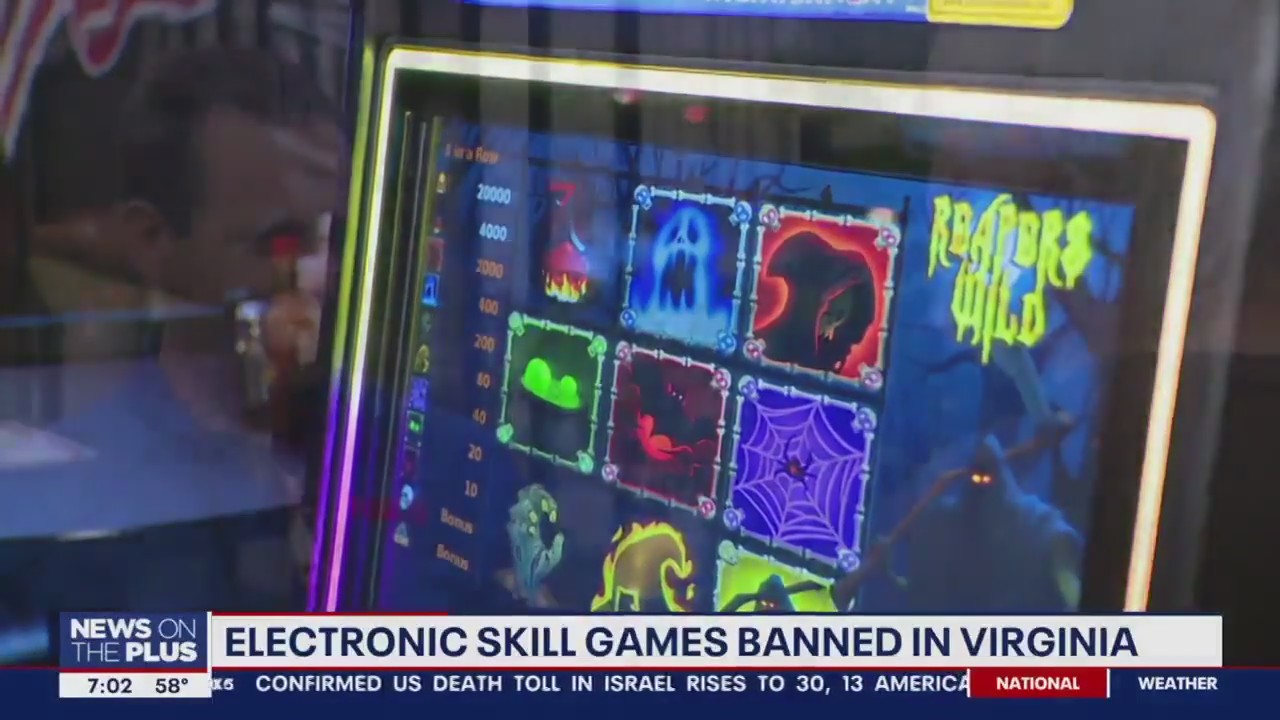Virginia Supreme Court ruling reinstating ban on electronic skill games brings new impacts for business owners

Supreme Court ruling outlawing electronic skill games in Virginia brings new impacts for business owners
If you’ve been to a restaurant or convenience store in Virginia, you may have seen so-called "skill games" — slot-machine-looking kiosks — inside. They have been the center of controversy in Richmond for years but after a Supreme Court ruling this past Friday, they’re now illegal in the Commonwealth.
FAIRFAX COUNTY, Va. - If you’ve been to a restaurant or convenience store in Virginia, you may have seen so-called "skill games" — slot-machine-looking kiosks — inside. They have been the center of controversy in Richmond for years but after a Supreme Court ruling this past Friday, they’re now illegal in the Commonwealth.
"We are very pleased with the Supreme Court’s decision upholding the constitutionality of the skill games law. The Commonwealth of Virginia has regulated gambling for centuries, and the skill games law is an ordinary exercise of the General Assembly’s authority to protect the public from dangerous gambling devices. The law is now in effect, and Commonwealth’s Attorneys are free to enforce it," a spokesperson for Virginia State Attorney General Jason S. Miyares said in a statement.
But not everyone feels that the ban is a good thing.
Rose Dodge is co-owner of Patriots Pub and Grill in Fairfax. She says her four skill-game kiosks are a huge draw.
"People specifically come just to play the games. They’ll order a soda or an iced tea just to tip the bartender and they come, usually, there’s a line just to play the games," Dodge told FOX 5.
In a decision Friday afternoon, a panel of the Virginia Supreme Court issued a notice that these terminals are now banned.
"’We long have viewed gambling as conduct that may be heavily regulated and even banned by the Commonwealth as an exercise of its police powers,’" the ruling said.
There’s history with these machines. In 2020, Virginia passed a law banning skill-game kiosks.
When the pandemic started, that ban was pushed back, as they were a source of desperately-needed tax revenue.
"It got complicated because the state had passed a ban, then the pandemic hit. These are mostly in small mom-and-pop convenience stores, and the pandemic, these stores said we need the money. So there was a compromise and the ban was put off a year until the end of the pandemic. So these stores would have some kind of revenue," said Dwayne Yancey, Executive Editor of the Virginia Cardinal, a non-profit digital publication covering Southwest and Southside Virginia.
Just as the ban was set to expire, a businessman filed a lawsuit calling the ban unconstitutional. A lower court issued an injunction on the ban, allowing these kiosks to remain operational pending the lawsuit.
Then, on Friday, the state Supreme Court ruling came down.
"This Supreme Court Decision very much came out of the blue," Yancey said.
Aside from the impact on local businesses, Yancey said more rural counties had come to rely on the revenue these machines generated.
The taxing authority has stopped on these machines, but Yancey said some counties took advantage of the revenue.
"In many rural areas, these games constitute a fairly sizable portion of the localities revenue. In Emporia where the lawsuit is originated, they account for 2.1% of the county’s budget. By contrast, in Fairfax County, they account for 0.007% of the budget," Yancey says, after research done by the Cardinal News.
For now, the kiosks are technically illegal and the case questioning their constitutionality is set to be heard in December.

